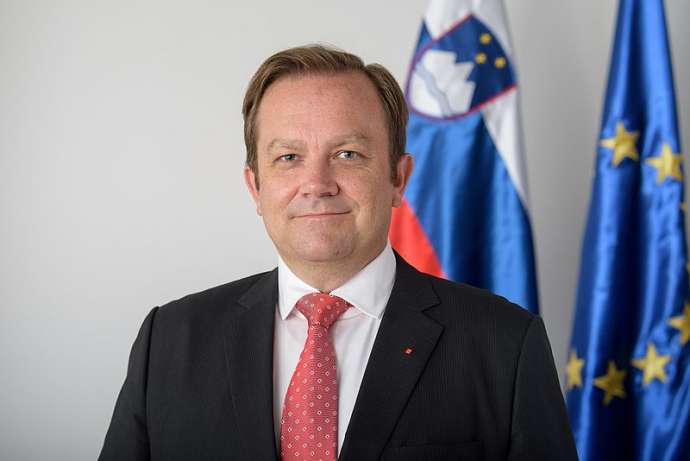STA, 12 January 2019 - After three months in office, Culture Minister Dejan Prešiček has told the STA that the Slovenian culture sector is successful and comparable with the production on the global scale despite the incomparable infrastructural and financial circumstances in which it functions. He would not change the culture financing model drastically.
"We are successful in all artistic fields. Music production is top-notch, theatre as well. We have individuals who have achieved world renown. This is positive and I'm very happy about the fact that there is a creative drive," the minister said in an interview.
The other thing is that those who work in their own country sometimes work in very difficult conditions compared with global production, which is also better financed, but nevertheless Slovenian artists keep making top achievements, he added.
As a minister, he sees his role in improving these conditions, but he is not inclined to making "major shake-ups" of the culture financing model.
"The system as it is should not be drastically changed. My opinion is that it needs to be only evaluated, and we should find out what is good and what does not function, and what is perhaps somewhat obsolete," Prešiček said in comments that are likely to sit uneasy with freelance artists, who have complained for years about inadequate financing.
He believes, however, that Slovenia lacks a clear strategy of development of culture. "In order for institutions to function well, we need standards, including for costs," he said, adding that talks about that were already under way.
Asked about the criteria for awarding the formal status of an artist, Prešiček said that artists provided society with such an added value that one could not say that there were too many of them.
"Artists think, they are critical of society and contribute to its development. Their social status and how much money the state earmarks for them is another question," he said, adding that the state could perhaps be stricter in awarding statuses, which sometimes come with paid social contributions.
Regarding the situation in culture, he said that with the technological and social progress, arts were being changed significantly as well. "For some arts adjusting to the new social circumstances is easier, for others it is harder."
The minister is convinced that the existing model of financing of culture could be an example to many countries with larger financial potential considering the importance of culture in society and the results it scores.
But Prešiček thinks that it is "so fragile" that hasted and major changes would bring more harm that benefits.
According to him, there is no shortage of ideas and tasks for the four-year term, which include the status of members of non-governmental organisations and self-employed culture workers, with which the state "has failed to deal with at the systemic level".
The idea is to regulate this with a special law, he said, adding that the bill prepared by the opposition Left could serve as its first draft.
Talks with Prime Minister Marjan Šarec and Finance Minister Andrej Bertoncelj and within his party, the Social Democrats (SD), suggest that there will be some more money for culture in the emerging supplementary budget for 2019, he said.
"Culture should not be perceived as a cost, but as an investment and added value both in the economy and tourism. It is a global trend and we are also adopting it. You cannot offer only mountains and water to a tourist, but also content and a story."
When it comes to legislation, Prešiček announced for February a public debate on changes to the media act, which he said would be adapted to the current technological environment.
"The planned change which will probably be most controversial politically will be prohibition of instigation of inequality and intolerance and measures when something like this happens. Sanctioning violations is something completely normal in all democratic societies," he said.






